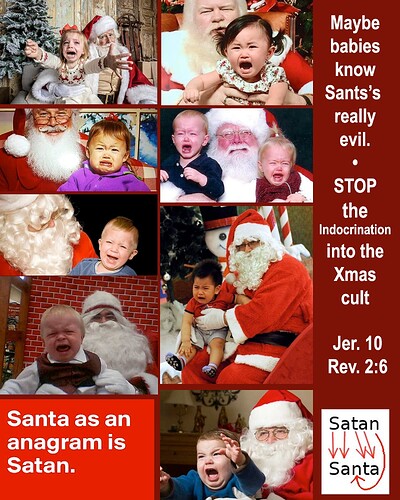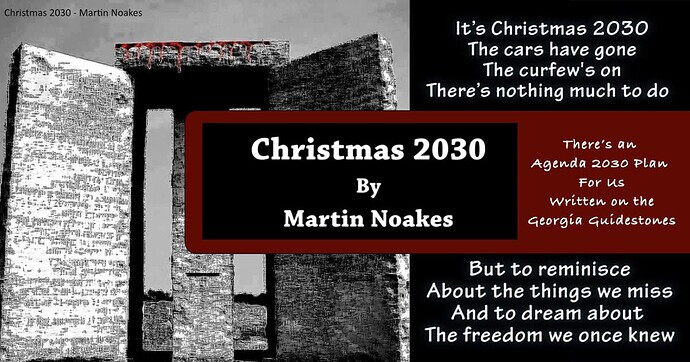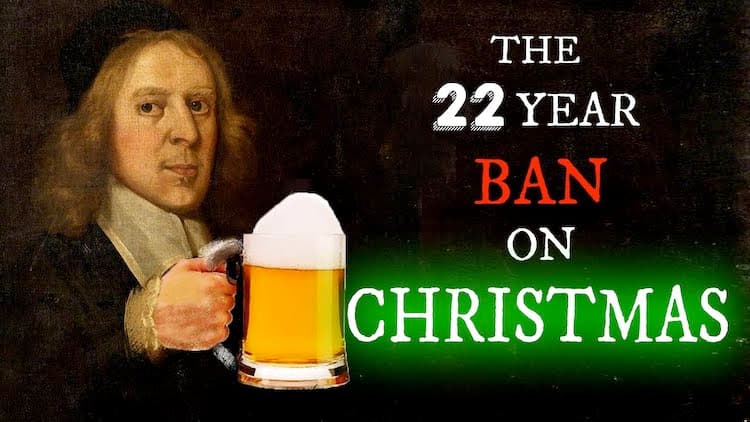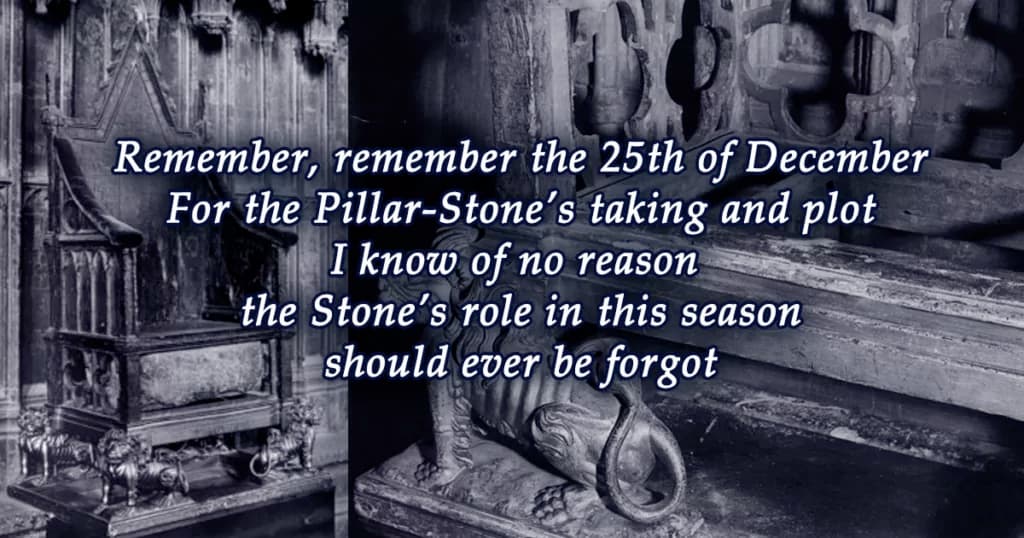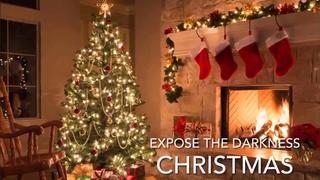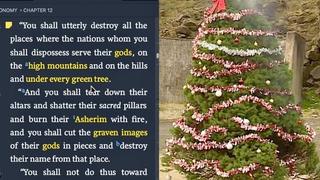WHO IS NIMROD AND WHAT DID HE DO?
Christmas - the Pagan Deception
Christians love Christmas, but it is not a Godly holiday even though the world makes this claim. The roots of Christmas are pagan and predate the birth of Jesus by hundreds if not thousands of years.
On each anniversary of Nimrod’s birth (Dec 25) Nimrod would visit the evergreen tree (see: Deut. 12:2, 29-32) and leave gifts upon it, setting the pattern for gift giving esteeming selfishness. Most humans have swallowed this lie hook, line and sinker.
(Nimrod is found in the Bible. The first and most thorough passage is Genesis 10:8-12)
The genealogies in Genesis 10 and 1 Chronicles 1 distinctly list Nimrod’s lineage. His father was Cush, the son of Noah’s son, Ham. Thus, Noah was Nimrod’s great-grandfather.
“Nimrod started the great organized worldly apostasy from God that has dominated this world until now. Nimrod’s mother’s name was Semiramis. After Nimrod’s death, his so-called mother-wife, Semiramis, propagated the evil doctrine of the survival of Nimrod as a spirit being. She claimed a full-grown evergreen tree sprang overnight from a dead tree stump, which symbolized the springing forth unto new life of the dead Nimrod. December 25th was the birthday of Nimrod. This is the real origin of the Christmas tree and the pagan holiday which has absolutely nothing to do with Christ.”
“Traditionally, a yule log was burned in the fireplace on Christmas Eve and during the night as the log’s embers died, there appeared in the room, as if by magic, a Christmas tree surrounded by gifts. The yule log represented the sun-god, Nimrod, and the Christmas tree represented himself resurrected as his own son Tammuz.”
**You may not know it, if you are celebrating December 25 better known today as “Christmas”, you are celebrating Nimrod’s birthday, not Christ’s birthday. Christ hates Christmas. Do you really believe the Lamb of God was born in the dead of winter? It says in Luke **1:26-38 that it was in the sixth month (the beginning of summer on the Julian calendar) when God sent Gabriel to tell Mary she would conceive and bear Jesus. Nine (9) months later would be Spring, the season of rebirth, not Winter, the season of death and decay.
Further, would people really be expected to travel great distances during the winter months, when roads could be iced over or impassible, to be taxed? If the people get sick, suffer injury or die on their way to pay taxes, then the taxes don’t get paid, do they?
The same goes for the shepherds. Do shepherds put their flocks out to pasture to graze during the dead of winter, when there is no grass?
It stands to reason from all of the available information that Jesus, the Lamb of God, was born in the Spring, the season of rebirth and growth, at the time of the Passover. It was the blood of the Lamb that caused the angel of death to Passover the Israelites when they were enslaved in Egypt, on the eve of their freedom. And it was again the blood of the Lamb that allowed the angel of death (Rom. 6:23) to Passover us again at the crucifixion and resurrection, again freeing us from the bondage of sin (John 8:25).
Please also see: Glastonbury – Summerland
and The “Nimrod” Tree – “NIMROD” – The LORD of Christmas
Scripture taken from The Kings of kings Bible:
https://The King of kings' Bible - Contents
Deuteronomy
20:19 When thou shalt besiege a city a long time, in making war against it to take it, thou shalt not destroy the trees thereof by forcing an axe against them: for thou mayest eat of them, and thou shalt NOT cut them down to employ [them] in the siege (nor for market-economics) (for the tree of the field [is] man's [life] - O2 - Oxygen to breathe):
20:20 Only the trees which thou knowest that they [be] not trees for food, thou shalt destroy and cut them down; and thou shalt build bulwarks against the city that maketh war with thee, until it be subdued.
Jeremiah
10:1 Hear ye the Word which the "I AM" speaketh unto you, O House of Israel:
10:2 Thus saith the "I AM", Learn not the way of the heathen, and be not dismayed at the signs of heaven; for the heathen are dismayed at them.
10:3 For the customs of the people [are] vain: for [one] cutteth a tree out of the forest, the work of the hands of the workman, with the axe.
10:4 They deck it with silver and with gold; they fasten it with nails and with hammers, that it move not.
Revelation
2:6 But this thou hast, that thou hatest the deeds of the Nicolaitanes (followers of Santa {Ni} Claus - Yuletide, Easter {Ishtar - a goddess of fertility - eggs a symbol of fertility} etc.), } - eggs a symbol of fertility} etc.), which I also hate..
2:15 So hast thou also them that hold the doctrine of the followers of St. {Ni}-Claus (Yuletide), which thing I hate.
So who are the “Nicolaitans”?
From: What Is the Origin of the Nicolaitans (Revelation 2:6, 15)? -
What Is the Origin of the Nicolaitans (Revelation 2:6, 15)?
Nicolaitan means "a follower of Nicolas." It comes from two Greek words, nikos and laos. Nikos means "conqueror" or "destroyer," and laos means "people." The original Nicolas was a conqueror or destroyer of the people!
Some people believe that the original Nicolas was Nimrod—the original archrebel, who conquered the people and founded a man-made civilization within two centuries after the Flood (Genesis 10:8-12)! While he was alive, Nimrod put himself in the place of God, or as the biblical text puts it, "he was a mighty hunter before the LORD" (verse 9). When he died, his admirers continued to worship him as a divine hero. They called him "Baal," a name found throughout the Old Testament, meaning "master" or "lord."
Nimrod also had other names. One, commonly used throughout Asia Minor, was "Santa" (see Lempriere's Classical Dictionary.) "Santa Claus" is but a shortened form of "Santa Nicholas" or "Saint Nicholas." Many unknowingly honor this Nicholas even in our day by by observing customs associated with December 25. Christmas originally was the Saturnalia or birthday of Nimrod. Of course, these customs handed down from ancient paganism have been renamed and made to appear innocent and good!
Note: Satan, which is an obvious anagram for Santa, is also known as the destroyer (“Abaddon” in Hebrew or, “Apollyon” in Greek, both of which mean “the destroyer” – Rev. 9:11), proving Santa = Satan.
No wonder Christ HATES Christmas.
Do you love Christ and His free gift of Eternal Life or do you prefer Satan/Santa and his temporary, worldly mammon/materialism and the certain death and destruction it brings?
**This year why not give friends and family the most loving and thoughtful gift that everyone needs and no one should be without: the Truth.
